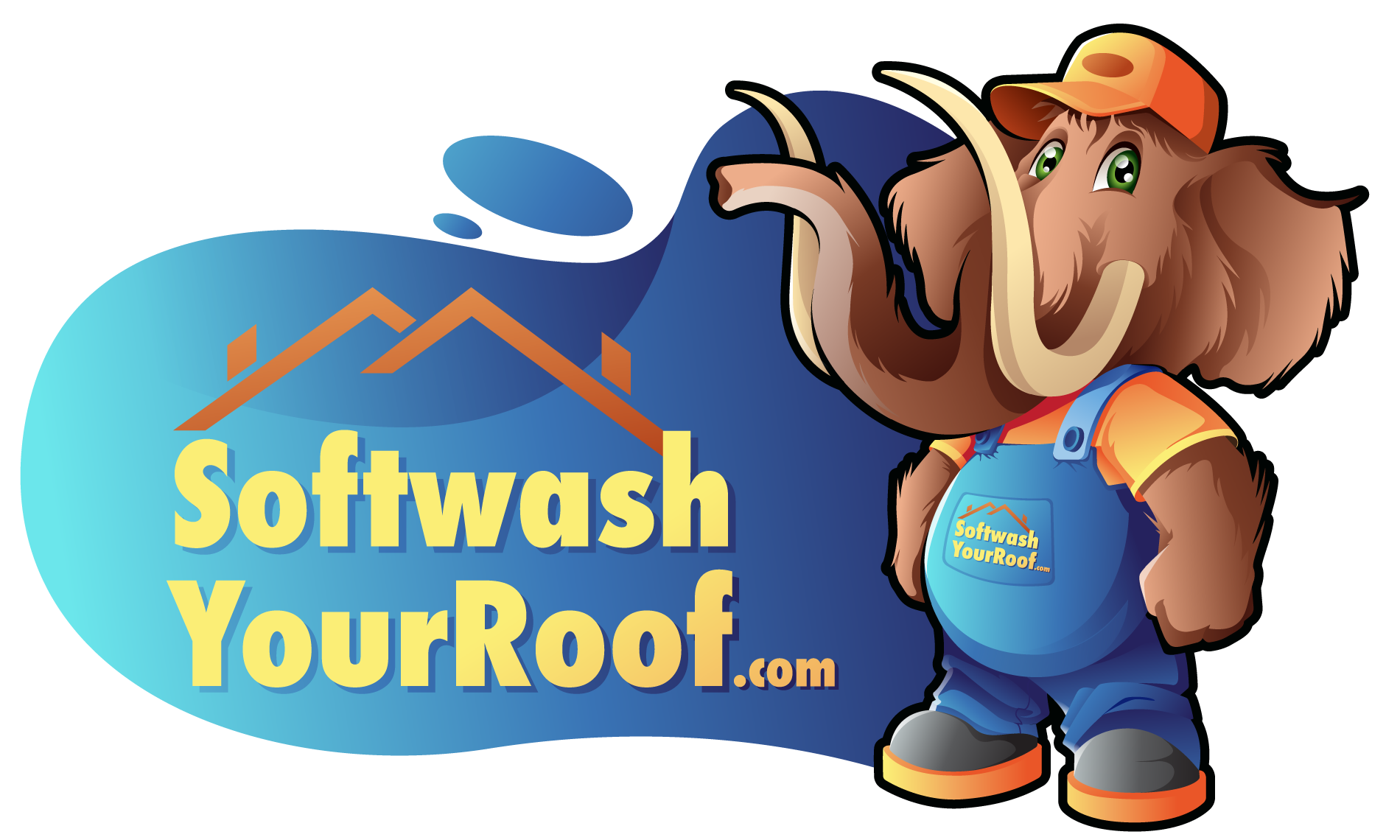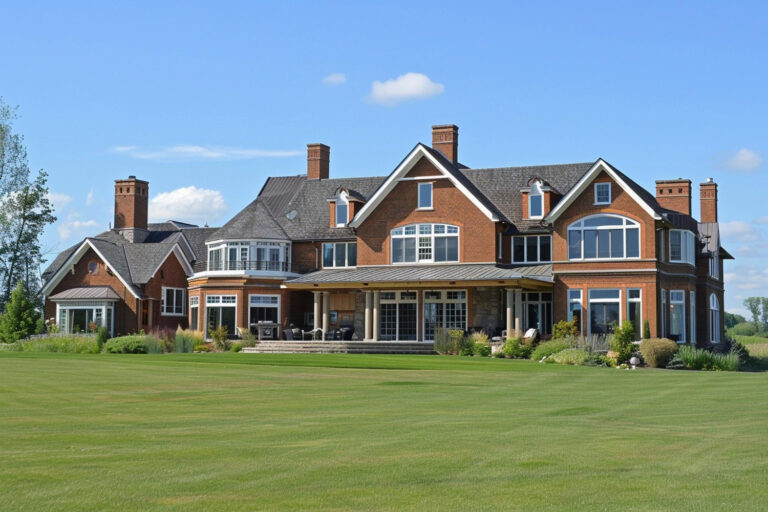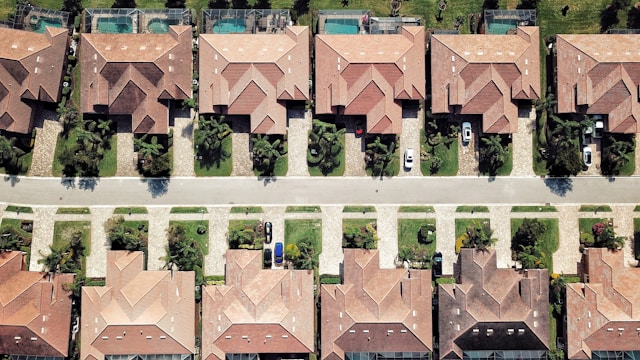How to Pressure Wash for Beginners in Johnson City: A Complete Guide (2024)
How to Pressure Wash Your Home in Johnson City: A Complete Guide for Beginners (2024)
Introduction:
Imagine stepping outside and seeing your home's exterior sparkle like new! That's the magic of pressure washing, folks. Did you know that a thorough pressure wash can increase your home's value by up to 5%? Pretty impressive, right? Whether you're a first-time homeowner in Johnson City or just looking to spruce up your property, this guide will walk you through everything you need to know about pressure washing your home. Let's dive in and get your house looking fresh and clean with pressure washing for beginners.
The Key Takeaways
- Safety First: Always wear protective gear, including closed-toe shoes, safety goggles, and ear protection. Please be careful with electrical connections, and never point the spray at yourself or others. Not following these safety guidelines can lead to serious injuries or damage to property.
- Choose the Right Equipment: Select a pressure washer with appropriate PSI and GPM ratings for residential use. Gas-powered washers are typically more potent for whole-house cleaning. Before starting, it's crucial to test the pressure washer on a small, inconspicuous area to ensure it won't damage the surface.
- Proper Preparation: A well-prepared start leads to a successful finish. Clear the area around your home, cover delicate plants, and identify potential hazards before starting. Pre-treat stubborn stains for better results.
- Technique Matters: Your skill is your strength. Use the correct nozzle and technique for different surfaces. Work from top to bottom in overlapping strokes and maintain a consistent distance and angle.
- Surface-Specific Approaches: Adjust your technique for different areas, such as decks, driveways, and windows. Use lower pressure on delicate surfaces like wood and windows.
- Post-Washing Care: Inspect for missed spots or damage after washing. Apply protective sealants to appropriate surfaces to maintain results.
- Regular Maintenance: Keep your home clean between washes with routine cleaning, gutter maintenance, and addressing mold-prone areas. Also, don't forget to maintain your pressure washer regularly to ensure its longevity and performance.
- Know When to Call Pros: Consider professional help for multi-story homes, delicate materials, or jobs that seem too complex or dangerous for DIY.
- Choosing a Professional: When hiring a service, ask about experience, insurance, and processes, get detailed estimates, and check references and reviews.
- Local Expertise: Local professionals understand Johnson City's specific climate and cleaning challenges, offering targeted solutions for your home.
Remember, pressure washing can be an effective way to maintain your home's appearance and value. Still, to achieve the best results safely, it requires careful planning, proper technique, and sometimes professional assistance.
Why Pressure Washing Matters in Johnson City
Tell you, folks, pressure washing in Johnson City isn't just about making your house look pretty. It's a downright necessity in our neck of the woods! I learned this the hard way when I first moved here from Arizona. Boy, was I in for a surprise with East Tennessee's climate?
So there I was, thinking my house was invincible. “It's just a little rain,” I said. “What's the big deal?” Well, let me tell you, Mother Nature had other plans. After my first year here, I stepped outside one morning and nearly fell off my porch. The whole house was green! Okay, I'm exaggerating a bit, but it felt like it.
Johnson City's climate is like a perfect storm for your home's exterior. We've got humidity that'll make you feel like you're swimming through air and enough rainfall to make you consider building an ark. All that moisture? It's a breeding ground for some nasty stuff.
Now, let's talk about the unholy trinity of home contaminants: mold, mildew, and pollen. These little devils are more persistent than a door-to-door salesman. Mold and mildew love to shop on your siding, especially in those shady spots. And don't even get me started on pollen! In spring, someone took a giant yellow paintbrush to everything. My black car? Yellow. My white porch? Yellow. My dog? Okay, he was already yellow, but you get the point.
But here's the kicker – it's not just about aesthetics. These contaminants can damage your home if left unchecked. Mold and mildew can damage your paint and siding, leading to costly repairs. For instance, mold can cause discoloration and deterioration of your siding, while mildew can eat away at your paint. And that thick layer of pollen? It can clog up your gutters faster than you can say, “Achoo!” This can lead to water damage and even structural issues if not addressed.
That's where pressure washing comes in, my friends. Regular pressure washing is like giving your house a superpower shield against these East Tennessee nuisances. You'll need a pressure washer, some detergent, and a bit of elbow grease. I give my place a good wash at least once yearly, usually in early spring before the pollen apocalypse hits. I start by applying the detergent to the siding, then I use the pressure washer to rinse it off. It's a bit of work, but the results are worth it!
The benefits? Oh boy, where do I start? First, it keeps your home looking fresh and clean. Nothing beats the satisfaction of seeing those streaks of grime disappear under the pressure washer's spray. It's like magic, I tell you! And the pride that comes with a clean home? That's a feeling you can't put a price on.
But more importantly, it's a crucial part of home maintenance. Pressure washing removes all those nasty contaminants before they can do real damage. It's like giving your house a health check-up and a spa day all in one! Plus, it can help prevent algae and moss growth, which can make your walkways slippery and dangerous.
And let's remember your wallet. Regular pressure washing can save you money in the long run. You're avoiding costly repairs and repainting jobs by preventing damage to your home's exterior. Plus, a clean home can boost your property value – something I wish I'd known before I tried to sell my first house here. The potential buyers weren't impressed with my “natural” green look. So, not only are you protecting your home, but you're also making a smart financial decision.
So, take it from someone who learned the hard way—don't underestimate the power of pressure washing in Johnson City. Your home (and your neighbors) will thank you for it. Now, if you'll excuse me, I've got a date with my pressure washer. This pollen isn't going to clean itself!
Choosing the Right Pressure Washer for Your Johnson City Home
Alright, folks, let's talk pressure washers. When I first decided to tackle the green monster growing on my Johnson City home, I thought any old pressure washer would do the trick. But as I soon discovered, choosing the right pressure washer is a learning process, much like finding the perfect dance partner. Get it wrong, and you're stepping on toes (or, in my case, stripping paint off the siding). But with a bit of guidance, you can avoid these missteps.
Let me start by saying there are two leading pressure washers: electric and gas-powered. I started with an electric one because, well, it was cheaper. Plus, I thought, “How hard can it be? Just plug it in and go!” It turns out it was about as effective as putting out a bonfire with a squirt gun. Don't get me wrong, electric pressure washers have their place. They're great for small jobs like cleaning patio furniture or your car. But for tackling a whole house? Not so much.
That's when I upgraded to a gas-powered pressure washer. Let me tell you, it was like going from a bicycle to a motorcycle! These bad boys pack a severe punch and easily handle more significant jobs. The downside? They're louder than my neighbor's dog at 2 AM and heavier than my mother-in-law's fruitcake. But for cleaning your home's exterior, they're the way to go.
Now, let's talk about PSI and GPM. When I first heard these terms, I thought someone spoke in code. PSI stands for pounds per square inch, and GPM is gallons per minute. PSI is how much cleaning power you've got, and GPM is how fast you can rinse away all that gunk. It's the difference between a hard punch (PSI) and a flurry of punches (GPM). You need both to be effective.
For most homes in Johnson City, you need a pressure washer with about 2,000 to 3,000 PSI and 2 to 3 GPM. Any less, and you might as well be using a garden hose. Any more, and you risk damaging your siding or blasting your windows into the next county.
When it comes to features, there are a few things I've learned to look for. First, get yourself a pressure washer with multiple nozzles. Trust me, you don't want to use the same nozzle on your delicate window screens that you use on your concrete driveway. I learned that lesson the hard way—RIP my kitchen window screen.
Another feature I love is an onboard detergent tank. It makes applying cleaning solution so much easier—no more lugging around a separate bucket of soap! And if you can find one with wheels, your back will thank you. Dragging a pressure washer around your property is as fun as it sounds.
Here's a pro tip: look for a pressure washer with a thermal relief valve. This little gizmo helps prevent your pump from overheating. I once fried a pump because I left it running while I took a “quick” phone call. Spoiler alert: it wasn't quick, and replacing a pump is costly.
Now, I know some of you might be tempted to go for the giant, baddest pressure washer you can find. But bigger isn't always better. A 4,000 PSI commercial-grade washer might sound impressive, but unless you plan on stripping paint or cleaning an oil rig, it's overkill for most residential use. Plus, it's as easy maneuvering as a bull in a china shop.
Choosing the right pressure washer for your Johnson City home is a significant decision. It's about finding the perfect balance between power and practicality. You want something strong enough to blast away our lovely East Tennessee grime but not so powerful that you end up writing “OOPS” on your siding with the spray. The right pressure washer can make your cleaning tasks a breeze, while the wrong one can lead to unnecessary stress and damage.
Remember, a pressure washer is an investment in your home's health and appearance. Take the time to find the right one, and you'll be rewarded with a cleaner home and fewer headaches. And who knows? You might even start looking forward to your annual cleaning day. Okay, that's a stretch. But at least you won't dread it as much! With the right pressure washer, you can transform a daunting task into a manageable and even satisfying one.
Essential Safety Precautions for Pressure Washing
Alright, folks, let's get serious for a minute. Safety might not be the most exciting topic, but trust me, it's crucial when it comes to pressure washing. I learned this the hard way, and the consequences of not following these precautions can be severe. I have some stories to share that will drive this point home!
First things first: protective gear. When I started pressure washing, I thought, “It's just water, right? How bad could it be?” Let me tell you, “just water” can pack a punch more substantial than my Uncle Joe's homemade moonshine. I made the mistake of wearing flip-flops once. Once. My big toe still hasn't forgiven me.
So, here's what you need: closed-toe shoes (steel-toed boots if you have them) to protect your feet from the high-pressure spray, long pants to shield your legs from any debris, and safety goggles to prevent any particles from flying into your eyes at 2,000 PSI. I also recommend wearing gloves to protect your hands from the high-pressure spray and any chemicals you use.
Oh, and ear protection! Gas-powered pressure washers can be louder than a rock concert. Once, I spent an entire afternoon pressure washing without earplugs, and let's just say I watched TV with the closed captions on for a week after that.
Now, let's talk about electrical safety. You must be extra careful if you're using an electric pressure washer. Water and electricity mix about as well as oil and water – which is to say, not at all. Always, and I mean always, plug your pressure washer into a ground fault circuit interrupter (GFCI) outlet. This outlet is designed to protect you from electrical shock by interrupting the flow of electricity if it detects a ground fault, acting like a lifeguard for electricity.
I learned this lesson the hard way when I plugged my washer into a regular outlet during a drizzle. Next thing I knew, sparks were flying, and I was doing a dance that would've put Michael Flatley to shame. It was not my proudest moment.
Another tip: keep your power cord connections dry and off the ground. I like to use a cord hook to keep the connection elevated. And for Pete's sake, don't try to tape up a damaged cord. Could you just replace it? Your life is worth more than the cost of a new cord.
Now, let's move on to avoiding injuries and property damage. First rule: never point the spray at yourself or anyone else. It's not a water gun, folks. That high-pressure stream can cause serious injuries. I once saw a guy try to clean his boots while wearing them. Let's say he walked funny for a week.
When it comes to property damage, starting with the widest spray nozzle and working your way down is crucial. I made the rookie mistake of using the narrowest nozzle on my vinyl siding. The result? A nice ‘racing stripe' etched into the side of my house. The wife wasn't too pleased about that one. But by learning from my mistakes, you can avoid such mishaps and feel secure in your cleaning endeavors.
Always test your spray on an inconspicuous area first. Different surfaces can handle different pressures. What works for your concrete driveway might strip the paint right off your deck. By being informed and prepared, you can avoid unexpected results and have a more successful cleaning experience.
And ladders? They're about as stable as a Jenga tower when you're wielding a pressure washer. If you need to reach high spots, use an extension wand instead. I tried the ladder route once and did an unintended backflip into my azalea bushes. It was a lesson learned the hard way, but it made me more cautious and aware of the potential dangers.
Last but not least, be mindful of your surroundings. Cover plants, outdoor outlets, and anything else that might not appreciate a high-pressure bath. And for the love of all that's holy, watch out for windows! I may or may not have turned my kids' bedroom window into a drive-thru window while trying to clean the second story. Let's say I got good at replacing window glass that summer.
Remember, folks, pressure washing can be incredibly satisfying when done right. But it can also be dangerous if you're not careful. Take these precautions seriously, and you'll be able to enjoy your sparkly, clean home without any trips to the ER or unexpected home improvement projects. If you'll excuse me, I must put on my safety gear. These gutters aren't going to clean themselves!
Preparing Your Johnson City Home for Pressure Washing
Well, folks, let me tell you about when I decided to pressure wash my Johnson City home without any prep work. It was like trying to paint a masterpiece on a canvas covered in old gum and pizza stains. It's not pretty, let me tell you! But you know what? I learned from that mistake, and now I'm here to share my knowledge with you.
First things first, clearing the area. Now, I used to think this just meant moving the lawn furniture. Boy, was I wrong! I once left a garden gnome in place, thinking, “What's the worst that could happen?” Let's say Gnomey took an unexpected trip across the yard and scared the bejeezus out of my cat. Poor Whiskers didn't come out from under the porch for a week!
So, here's what you do: move everything. And I mean everything. Grills, potted plants, your kid's bike that's been rusting in the same spot since 2019 – all of it needs to go. Trust me, it's easier to move things before than to explain to your spouse why their prized rosebush is now a modern art installation.
Now, let's talk about covering delicate plants. I learned this lesson the hard way when I pressure-washed my house and accidentally gave my wife's prize-winning petunias a crew cut. Oops! These days, I use plastic sheeting to cover anything I don't want to get wet or damaged. It's like giving your plants a little raincoat for the day.
Identifying potential hazards is crucial, folks. Look for things like loose siding, cracked windows, or any spots where water might seep in where it shouldn't. These can lead to water damage or even structural issues if not addressed. I once missed a small crack in my window frame and ended up with an impromptu indoor water feature in my living room. Let me tell you, “waterfall chic” is not a decorating trend I'd recommend.
Remember to cover outdoor electrical outlets and light fixtures. Water and electricity mix about as well as my Uncle Joe and Aunt Mildred at Thanksgiving dinner—which is to say, not at all. If these areas get wet, it could lead to electrical shorts or even fires. I use plastic bags and duct tape to keep these areas dry. It might not look pretty, but it beats having to rewire your house!
Now, onto pre-treating those stubborn stains. Oh boy, do we have some doozies here in Johnson City? Between the pollen, the mildew, and whatever mystery gunk appears on the north side of the house every spring, we've got our work cut out for us.
I like to tackle these tough spots with a bit of pre-treatment. For mildew, I use a mixture of water and white vinegar. Could you spray it on about 15 minutes before you start pressure washing? It's like giving those stains a stern talking-to before you blast them away.
You might need something more substantial for stubborn areas, like those high-traffic spots around your entryway or that patch under the bird feeder (why did I put that so close to the house?). I use a commercial cleaner designed for pressure washers. Be careful not to get it on your plants – unless you're going for that “post-apocalyptic wasteland” look in your garden.
Here's a pro tip: pre-treat your driveway and walkways, too. These areas collect more dirt and grime than a toddler's hands at a finger-painting party. I once skipped this step and spent three hours trying to remove tire marks from my driveway. My neighbors probably thought I was writing my name in cursive with the pressure washer!
Remember, folks, preparation is critical. It might seem like a pain in the keister now, but trust me, it'll save you time, money, and many headaches in the long run. Plus, it'll keep you from explaining to your HOA why your house looks like it went ten rounds with a giant squid.
So, take the time to prep correctly. Your house (and your sanity) will thank you for it. And when you're done, you'll feel a sense of relief and satisfaction, knowing you've done a thorough job. If you excuse me, I must apologize to my wife's petunias. Again. Happy washing, you all!
Step-by-Step Guide to Pressure Washing Your Home's Exterior
Alright, buckle up, folks! We're about to dive into the nitty-gritty of pressure washing your home's exterior. I remember my first time like it was yesterday – me, a pressure washer, and a lot of misplaced confidence. Let's say it was a learning experience!
First, set up your pressure washer correctly. I used to think this meant just plugging it in and pulling the trigger. Ha! That was a rookie mistake. You've got to prime that puppy first. It's like warming up before a marathon, except instead of stretching, you're ensuring your machine doesn't throw a tantrum mid-wash.
Start by connecting your garden hose to the pressure washer. Ensure it's snug – nobody wants a surprise shower from a loose connection. Trust me, I've been there, and explaining to your neighbors why you're soaked head to toe is not a conversation you want to have.
Next, you can choose your nozzle. This isn't a one-size-fits-all situation, folks. Using the wrong nozzle is like trying to eat soup with a fork – frustrating and messy. For most home exteriors, I start with a 40-degree nozzle. It's wide enough to be gentle but still gets the job done.
Now, let's discuss techniques for different surfaces. Siding is tricky—you want to clean it, not turn it into Swiss cheese. I learned this the hard way when I got a little too trigger-happy and ended up with vinyl siding that looked like it had been in a shootout.
Keep your nozzle at least 12 inches away for siding and spray at a slight downward angle. Work from top to bottom in overlapping strokes. It's like mowing the lawn, but vertical and a lot wetter.
Brick and concrete are more demanding customers. You can get a bit closer with these bad boys, but still, easy does it. I got overzealous with my driveway and etched my initials into the concrete. Impressive? Yes. Intentional? Not so much.
For brick and concrete, use a 25-degree nozzle and keep it about 6-8 inches away. Move in steady, overlapping strokes. And for the love of all that's holy, don't linger in one spot too long unless you're going for that “modern art” look.
Working in sections is critical for optimal results. I learned this after spending three hours on one side of my house, only to realize the sun had dried the soap on the other side into a crusty mess. It was not my finest moment.
Start at the top and work your way down in manageable sections. I like to divide my house into thirds—top, middle, and bottom. I soap up one section, rinse it, and then move to the next. It's like a choreographed dance, except instead of music, you've got the sweet sound of grime being blasted into oblivion.
Here's a pro tip: keep your spray at a consistent angle. I once got distracted by my neighbor's yappy dog and ended up with a stripe pattern on my siding that would make a zebra jealous. Took me ages to even it out.
Remember to take breaks, folks. Pressure washing is more of a workout than you might think. I once spent six hours washing my house and ended up with arms so sore I couldn't lift my coffee cup the following day. Talk about a tragedy! Don't forget to rest and recharge, it's all part of the process.
Remember to stay hydrated. You might be surrounded by water, but unless you're a fish, that's not going to cut it. I keep a water bottle nearby and take regular swig breaks. It's like a toast to your hard work every few minutes. Your body will thank you for it.
Lastly, I would like to ask you to please be patient. Rome wasn't built in a day, and your house isn't going to get clean in five minutes. Take your time, do it right, and you'll be rewarded with a clean home that makes your neighbors green with envy. Remember, the journey is just as important as the destination.
So there you have it, folks. Follow these steps, and you'll be pressure washing like a pro in no time. Just remember: respect the machine, respect the surfaces, and for Pete's sake, respect your back! If you excuse me, I've got a date for my pressure washer. These gutters aren't gonna clean themselves!
Tackling Specific Areas of Your Johnson City Home
Oh boy, let me tell you about tackling specific areas of your Johnson City home. It's like a treasure hunt, except instead of gold, you're finding different flavors of grime. Fun times, folks!
Before we dive into the specifics, let's talk safety. Always wear protective gear, like goggles and closed-toe shoes, when using a pressure washer. And never point the nozzle at yourself or others. Safety first, folks! Now, let's start with decks and patios. Now, I used to think these were easy-peasy. Just blast away. Wrong! I learned the hard way that wood decks are about as delicate as my great-aunt Mildred's china collection.
The first time I pressure-washed my deck, I went in guns blazing like I was fighting a grime war. I ended up with a deck resembling a horde of angry beavers who had attacked it. Splintered wood everywhere! My wife wasn't too thrilled about getting splinters in her feet every time she stepped outside. But hey, we all make mistakes, right? It's all part of the learning process.
Here's the trick: use a lower pressure setting, around 1500-2000 PSI, and a wider nozzle, like a 40-degree nozzle, for wood. It's like giving your deck a gentle massage instead of a karate chop. Please work with the grain of the wood, not against it. And for the love of sweet tea, don't get too close! Keep that nozzle at least 12 inches away unless you want that “distressed” look.
Now, onto driveways and sidewalks. These tough cookies can handle a bit more pressure. I like to think of it as the difference between washing a delicate blouse and scrubbing a pair of muddy work boots. You can let loose here!
But here's a pro tip: pre-treat those oil stains. I once spent two hours trying to blast an old oil stain off my driveway—it might as well have been trying to move a mountain with a toothpick. I hit those spots with a degreaser about 15 minutes before I started. It works like a charm!
And remember those pesky weeds growing between your pavers. The first time I pressure-washed my sidewalk, I thought I'd killed all the weeds. I felt like a regular garden warrior! Two weeks later, those little green monsters were back with a vengeance. But you know what? It's all part of the process. Now, I make sure to get between the cracks and even consider using a patio cleaner attachment. It's like giving your sidewalk a deep tissue massage, and the satisfaction of a weed-free path is worth it.
Now, let's talk about windows and gutters. Please be sure to approach these with caution, folks. It's a delicate dance, like trying to waltz with a porcupine. But with the right techniques and a healthy dose of caution, you'll be just fine.
Windows are tricky. Too much pressure and you'll be shopping for new windows faster than you can say, “Oops!” I learned this lesson when I accidentally turned my kid's bedroom window into a drive-thru. The good news? Drive-thru windows are great for passing snacks. The bad news? They could be better for keeping out the rain.
For windows, dial that pressure way down. Use a soaping nozzle, which is designed to apply detergent, to apply a gentle cleaner, then switch to a wide spray pattern, like a 25-degree nozzle, to rinse. Keep that nozzle at least three feet away. It's like trying to wash your windows from across the street—frustrating but way safer for your wallet.
Gutters are another beast entirely. The first time I tried to clean my gutters with a pressure washer, I ended up with a face full of leaves and a new hairstyle courtesy of the gutter sludge. It was not my finest moment.
Here's what I do now: safely use an extension wand to reach those high spots. No more “Ladder Limbo” for this guy! Start at the downspout and work your way back. It's like unclogging a giant, horizontal drain. Just be prepared for the waterfall of gunk. I recommend wearing a raincoat… and maybe goggles.
Oh, and watch out for those gutter nails! I got a little too enthusiastic and looped half my gutters. The following weekend, I played “Find the Gutter Nail” in my flowerbeds. Trust me, it's less fun than it sounds.
Remember, folks, patience is vital in these specific areas. Rome wasn't cleaned in a day, and neither will your Johnson City home. Take your time, use the proper techniques, and soon enough, your place will shine brighter than a new penny in the Tennessee sun!
If you excuse me, I've got a date for my gutter and time to see what surprises Mother Nature left for me this season. Wish me luck!
Post-pressure washing Care and Maintenance
Well, folks, let me tell you about post-pressure washing care and maintenance. It's like the afterparty of cleaning – not as exciting as the main event, but skip it, and you'll be sorry!
First up, inspection time. Now, I used to think my job was over once I was done blasting away. Ha! Rookie mistake. One time, I packed up my gear, feeling mighty proud of myself, only to have my wife point out a spot I'd missed right above the front door. It was like a billboard advertising my incompetence to every visitor. Talk about embarrassing! Now, I've learned the importance of a thorough walk-around inspection. It's not just a task, it's a responsibility to ensure your home is spotless.
So now, once I'm done, I do a thorough walk-around. I'm talking Sherlock Holmes level of investigation here. Look for any missed spots, especially in those tricky corners and under the eaves. And keep an eye out for any damage you might've accidentally caused. I once got a bit too trigger-happy and ended up etching a nice “racing stripe” into my siding. Oops!
Next up, protective sealants and treatments. This is like putting sunscreen on your house. You can just skip it, and you're just asking for trouble down the road. I learned this the hard way when I pressure-washed my deck and called it a day. Come spring, it looked worse than before! Now I know better. Applying these treatments is not just a task, it's a way to ensure your home is prepared for any weather.
Apply a suitable water sealant once everything's dry for wood surfaces like decks. It's like giving your deck a raincoat. For concrete, a quality sealer can help prevent stains and make your next cleaning job a breeze. Trust me, your future self will thank you.
Oh, and remember your siding. If you've wood siding, a coat of paint or stain might be in order. I once put this off and ended up with siding that looked more weathered than an old sea captain. It's not the look I was going for!
Now, let's talk about maintaining that squeaky-clean look between washes. It's like trying to keep your kitchen clean with a house full of teenagers – challenging but not impossible.
First tip: invest in a suitable leaf blower. It's like a magic wand for keeping your walkways and driveway clean. I use mine weekly to blow away leaves, dirt, and whatever else Mother Nature decides to dump on my property. It's oddly satisfying, like playing God with the wind.
Next, could you consider a soft wash between pressure washing sessions? It's gentler than a full-on pressure wash but more challenging than a garden hose. I mix up a solution of water and a mild detergent, then use a pump sprayer to apply it. It's like giving your house a sponge bath – more thorough than a pressure wash, but it'll keep things looking fresh.
Remember your gutters! I know, I know, nobody likes cleaning gutters. But trust me, it's easier to do some maintenance now than deal with a waterfall pouring over your gutters later. I check mine every few months. Once, I put it off and ended up with a gutter garden. My wife suggested we start charging admission to see the “rooftop botanical display.” Very funny, dear.
Oh, and here's a pro tip: keep an eye on those areas prone to mold and mildew. In Johnson City, that's everywhere. I hit trouble spots with a mixture of water and white vinegar every few months. It's like giving those spores a stern talking-to before they can set up shop.
Lastly, could you consider your landscaping? Trimming plants back from your house not only looks nice but also prevents them from holding moisture against your siding. I learned this lesson when my overgrown bushes turned the side of my house into a mold farm—not precisely the crop I was hoping to harvest!
Remember, folks, maintaining your home's cleanliness between washes is like flossing – it's not the most exciting task, but neglect it, and you'll regret it. A little effort goes a long way in keeping your Johnson City home looking its best. And when you see your home shining, you'll feel a sense of accomplishment and pride that's worth every effort.
Excuse me, I have a date for my leaf blower. These fall leaves are going to need to clear themselves! Happy cleaning, you all!
When to Call a Professional Pressure Washing Service in Johnson City
Let's talk about knowing when to wave the white flag and call in the pros. Now, I'm all for DIY – heck, I once tried to build a treehouse for my kids that looked more like abstract art. But when it comes to pressure washing, sometimes you must know when to fold them. And hey, I might sprinkle a bit of humor here and there, so don't take everything too seriously.
I remember when I decided to tackle my three-story Victorian home all by my lonesome. Picture this: me, teetering on an OSHA-approved ladder, trying to reach the peaks of my roofs with a pressure washer extension wand. I looked like a deranged Cirque du Soleil performer! My neighbor Bob was taking bets on how long before I ended up in traction. That's when I realized some jobs are too big for one man and his trusty pressure washer. Not to mention the safety risks-one wrong move and I could have been in the hospital. Safety is another key reason to consider hiring a professional.
So, what signs might indicate that you might be in over your head? If you are Googling “how to rappel down the side of a house” or “can I pressure wash from a hot air balloon?” It might be time to call the pros. If your home is taller than two stories, has hard-to-reach areas, or has delicate materials like old brick or stucco, it's best to leave it to the experts.
Another sign? If you've been at it for hours and your house still looks like it's been mud wrestling. I once spent an entire weekend trying to clean my exterior, only to end up with a patchy mess resembling a Dalmatian with mange. Not precisely the curb appeal I was going for!
Now, let's delve into the benefits of hiring local experts. These professionals know Johnson City like the back of their hand. They understand our unique climate and the types of grime we deal with, and they probably went to high school with your cousin's neighbor's dog groomer. This local knowledge is invaluable when choosing the right cleaning solutions and techniques for your home. For instance, they know exactly how to tackle the stubborn mildew that plagues our area, or how to clean delicate historic brick without damaging it. It's all about that local touch, you all!
Local pros have the right equipment for the job. While I'm out here playing with what essentially amounts to a glorified Super Soaker, these guys roll up with machines that look like they could blast a hole into China. They've got extensions, special nozzles, and cleaning solutions that are probably illegal in five states.
Plus, they've seen it all. Is that weird green stuff growing on your north-facing wall? They have a name for it and know how to banish it back to whatever dimension it came from. That stubborn stain on your driveway that's outlived three sets of tires? They'll have it gone faster than you say, “sweet tea.” Their expertise and thoroughness will leave your home looking better than ever, giving you the confidence that your home is in good hands.
But here's the real kicker: insurance. Yeah, I said it—the “I” word. If I accidentally blast a hole through my siding, guess who's paying for it? Yours truly. But when you hire a pro, they're insured up to their eyeballs. Peace of mind, folks. It's priceless. You can rest easy knowing that any potential damages are covered, avoiding the stress and financial burden of unexpected repairs.
When picking a pressure washing company, you must ask the right questions. It's like dating – you want to know what you're getting into before you commit. By asking the right questions, you can ensure you're making an informed decision about who to trust with your home, empowering you to make the best choice for your home.
First off, could you ask about their experience? You don't want some rookie who thinks “soft wash” is a new fabric softener. Ask how long they've been in business and if they have experience with homes like yours.
Next, insurance and licensing. Be bold about asking for proof. I once hired a guy off Craigslist who claimed he was “fully insured.” His idea of insurance was crossing his fingers and hoping for the best. Lesson learned!
Ask about their process and the products they use. If they start throwing around words like “eco-friendly” and “biodegradable,” you know they're on the right track. Mother Nature will thank you, and so will your prize-winning petunias.
Remember to ask for references or check online reviews. Word of mouth is powerful in a place like Johnson City. If they've left a trail of sparkling clean homes and happy customers, that's a good sign.
Lastly, could you get a detailed estimate in writing? Nobody likes surprise charges. It's like going to a restaurant and finding out they charge extra for the fork. No thanks!
Remember, folks, there's no shame in calling in the pros. Sometimes, the most intelligent DIY decision is knowing when to Not. So, could you contact the local experts if you find yourself over your head? Your house (and your health insurance) will thank you.
If you'll excuse me, I must apologize to my ladder for our failed acrobatic attempt. Stay clean, Johnson City! And hey, if you have any pressure-washing stories or questions, feel free to share them in the comments. Let's keep the conversation going!
Conclusion:
Wow, you've passed our complete guide to pressure washing your Johnson City home! With these tips and tricks, you're ready to tackle this satisfying DIY project. Remember, a clean home is a happy home, and your newly pressure-washed exterior will be the talk of the neighborhood. Don't be surprised if your neighbors start asking for your secret! So, grab that pressure washer, stay safe by following the necessary precautions, and prepare to unveil a sparkling clean version of your home. Your future self (and your property value) will thank you!
Frequently Asked Questions (FAQs)
- Q: How often should I pressure wash my home in Johnson City? A: While it depends on your specific situation, most homes in Johnson City benefit from an annual pressure wash, typically in early spring before pollen season hits. This proactive approach not only keeps your home looking its best but also helps prevent the build-up of mold, mildew, or other contaminants. However, you may need to do it more frequently if you notice a significant build-up.
- Q: What PSI (pounds per square inch) should I use for pressure washing my home? A: For most homes in Johnson City, a pressure washer with 2,000 to 3,000 PSI is suitable. However, always start with a lower pressure and wider nozzle, especially on more delicate surfaces like wood or vinyl siding. You can adjust as needed, but remember that higher pressure is only sometimes better and can cause significant damage if misused.
- Q: Is it safe to pressure wash my windows? A: While it's possible to pressure wash windows, it's risky and requires extreme caution. Use shallow pressure, keep the nozzle at least 3 feet away, and use a wide spray pattern. Many homeowners prefer to clean windows manually or hire professionals for this task for safety and to avoid potential damage. Always remember, caution is key when pressure washing windows.
- Q: How do I prevent streaks when pressure washing my house? A: To prevent streaks, work in small sections from top to bottom, maintain a consistent distance and angle, and ensure you use the proper cleaning solution for your surface. You can overlap your strokes slightly, and don't let the cleaning solution dry on the surface before rinsing. A post-wash rinse with a garden hose can often help if you notice streaks.
- Q: What should I do after pressure washing my deck? A: After pressure washing your deck, allow it to dry completely (usually 24-48 hours, depending on the weather). Once dry, please inspect any raised wood fibers and sand if necessary. Then, apply a water-repellent sealer to protect the wood from moisture and UV damage. This not only prolongs the results of your pressure washing but also extends the life of your deck.
Remember, these are general guidelines. Always consult your pressure washer's manual and consider your specific home's needs when pressure washing. Your pressure washer's manual is a valuable resource that can provide specific instructions and safety guidelines, ensuring you make the best decisions for your home.









3 Comments
Comments are closed.